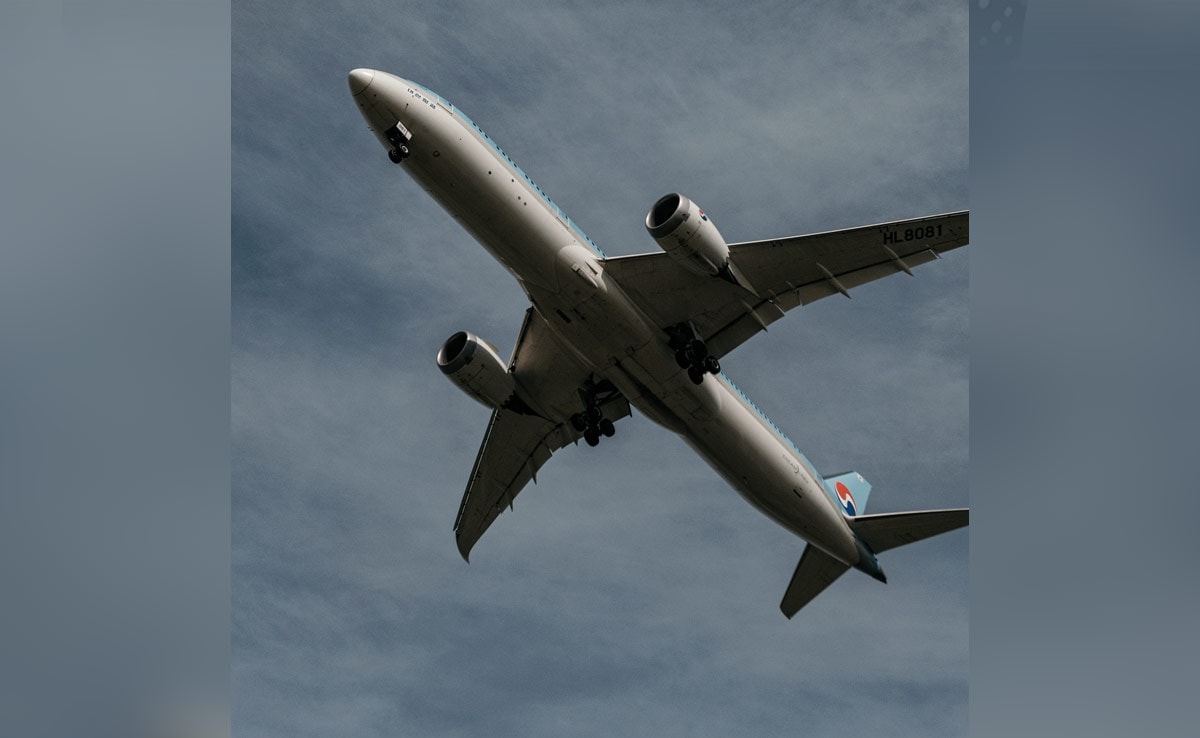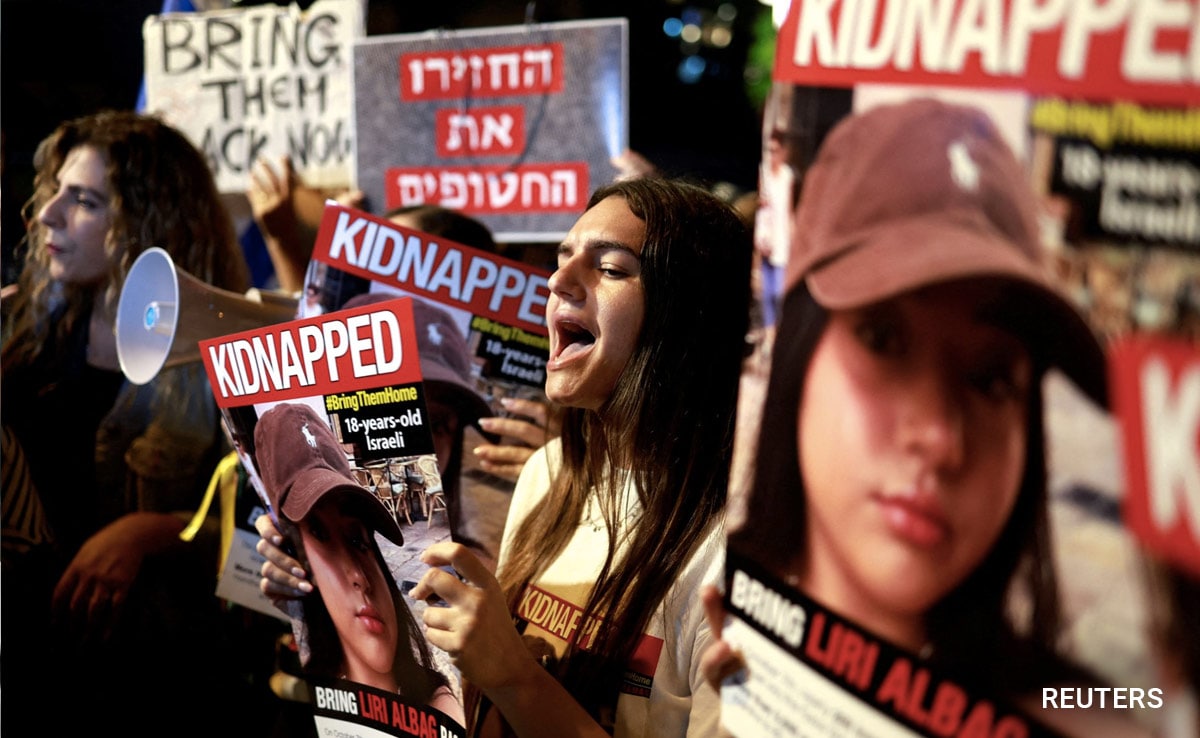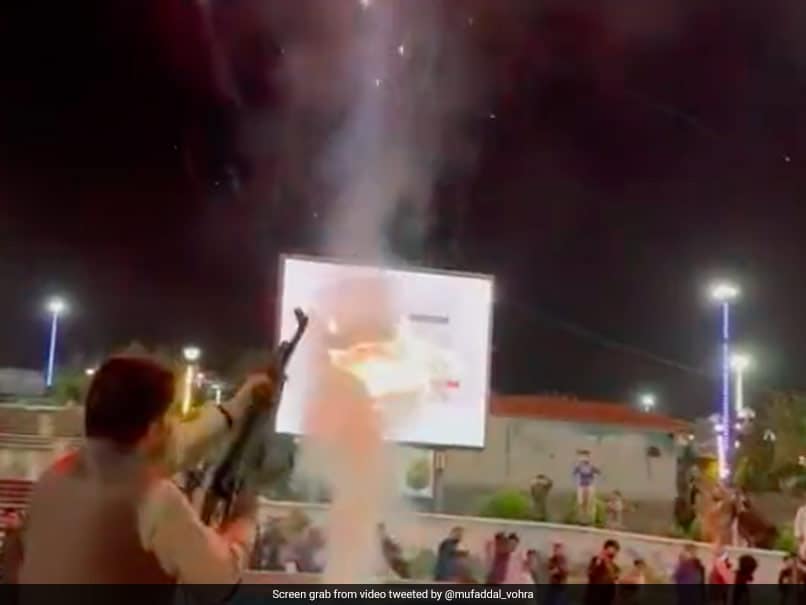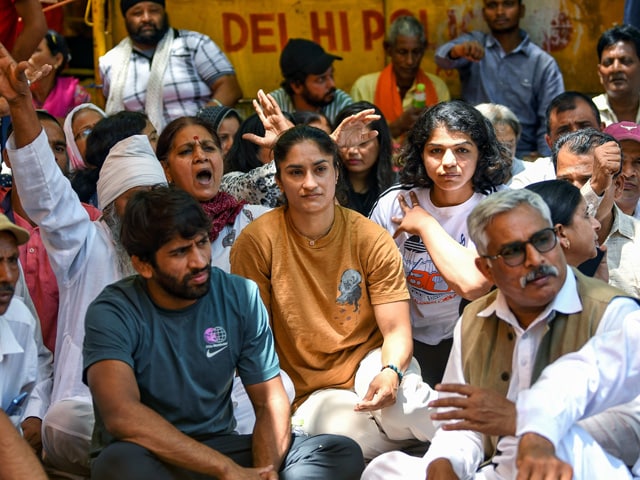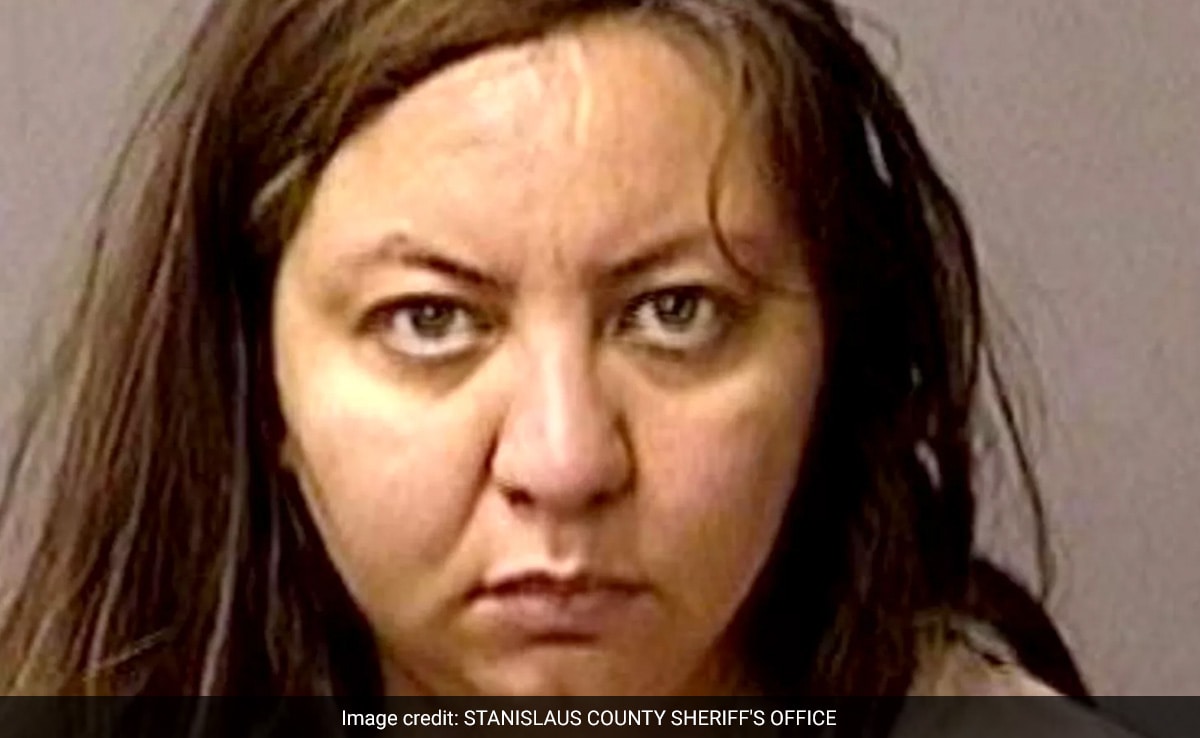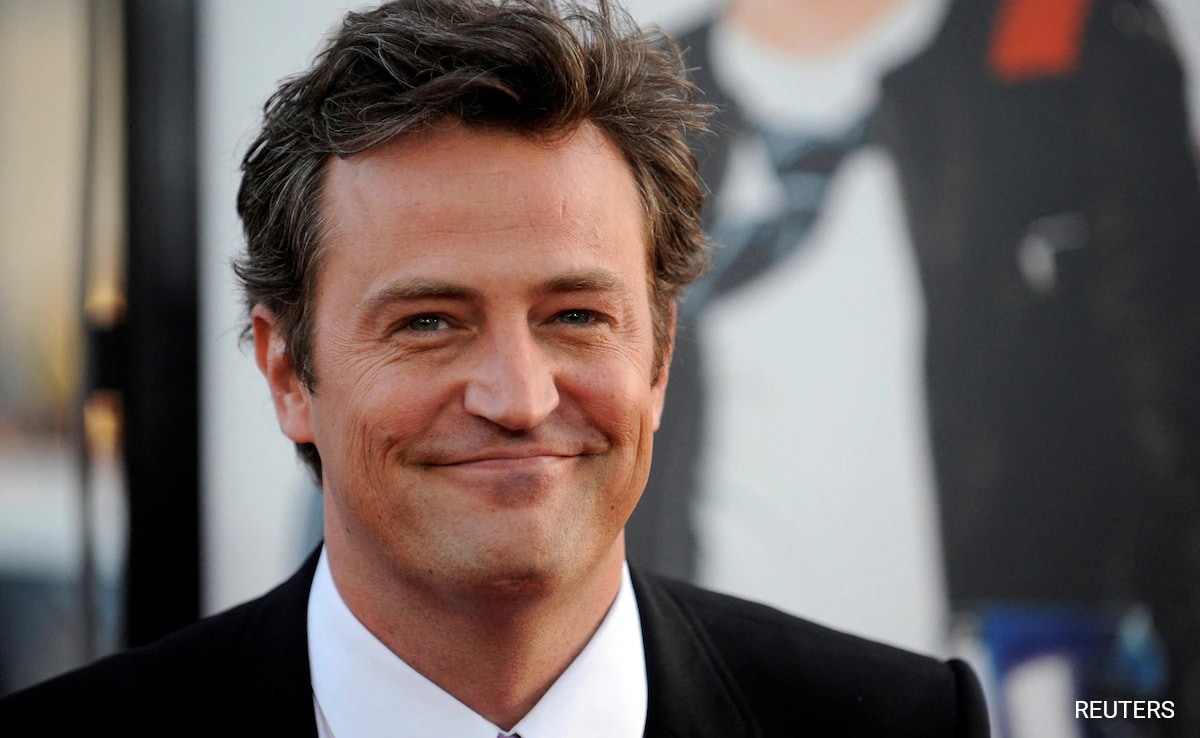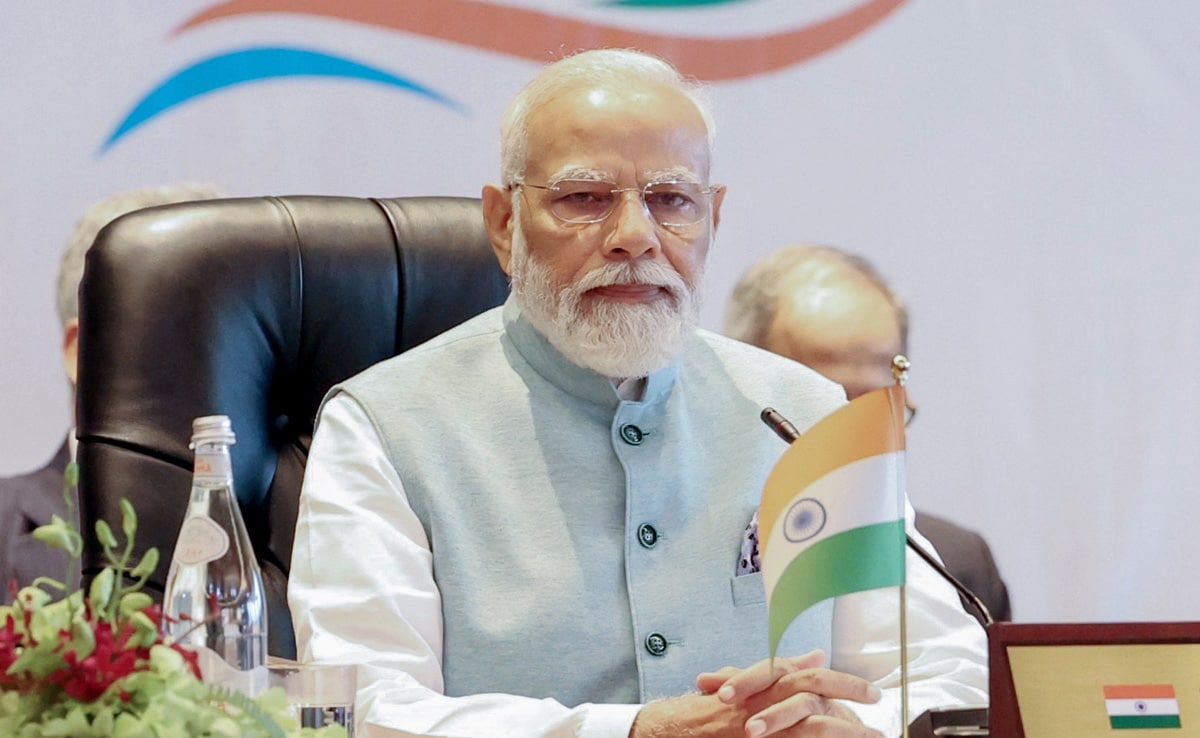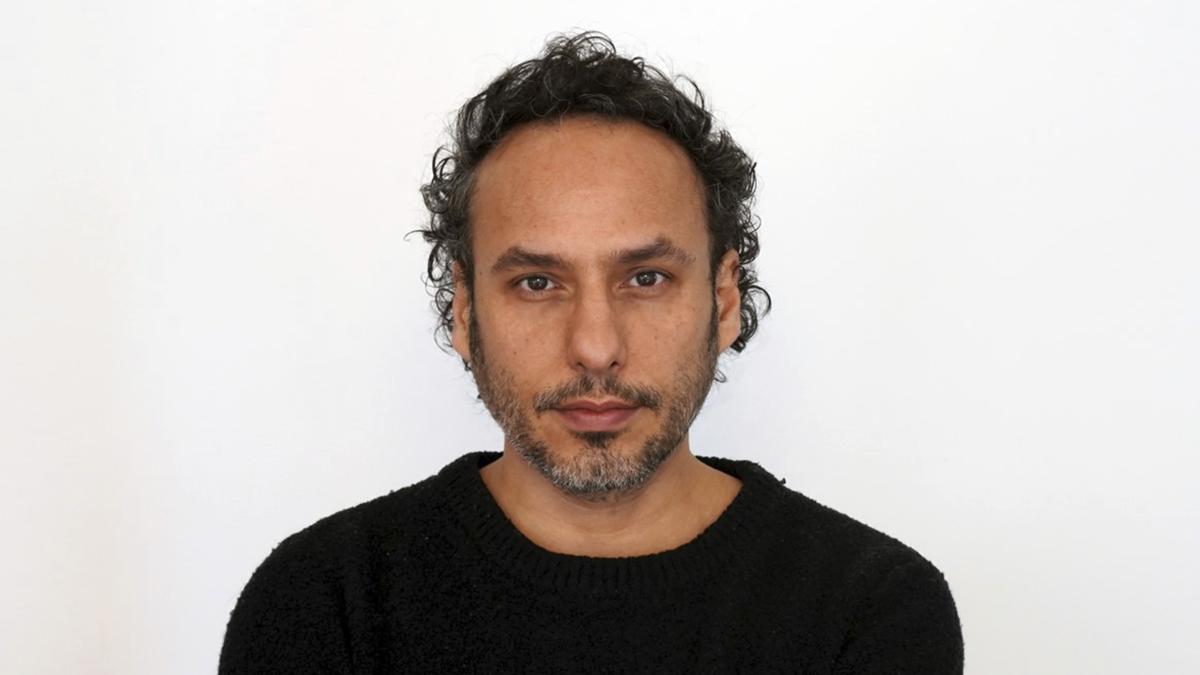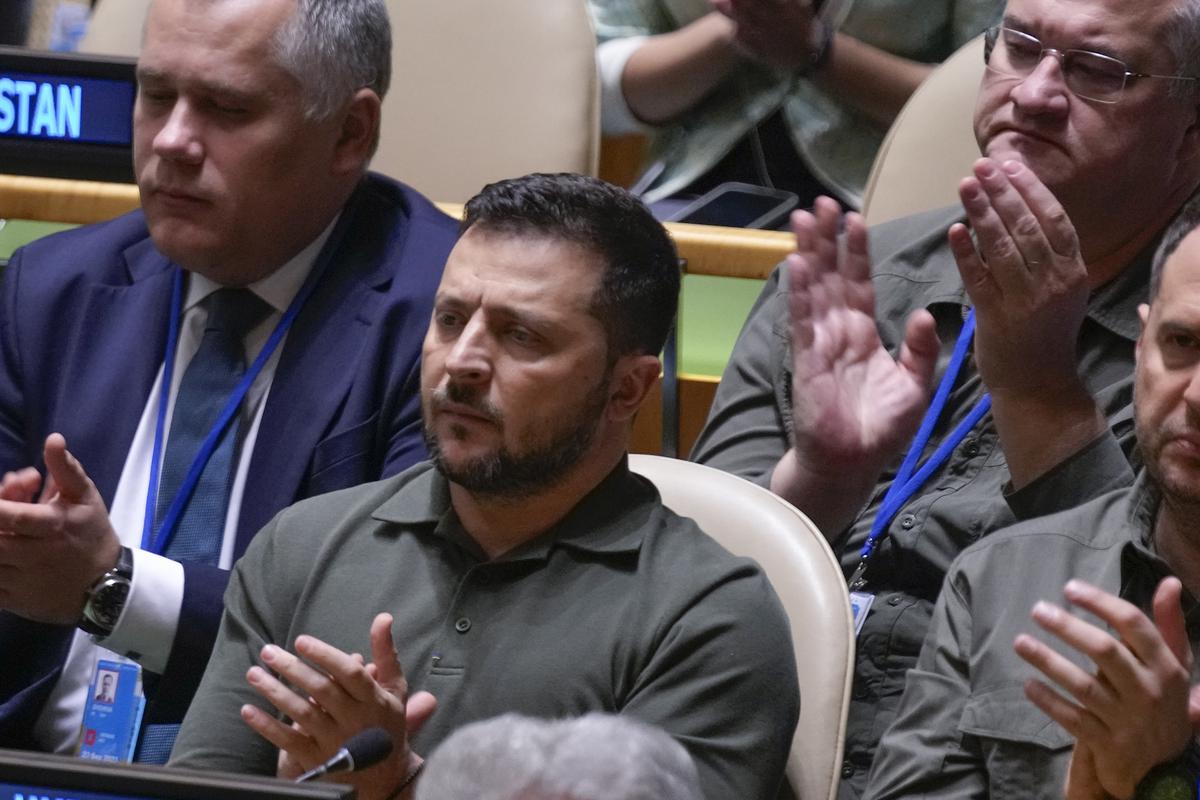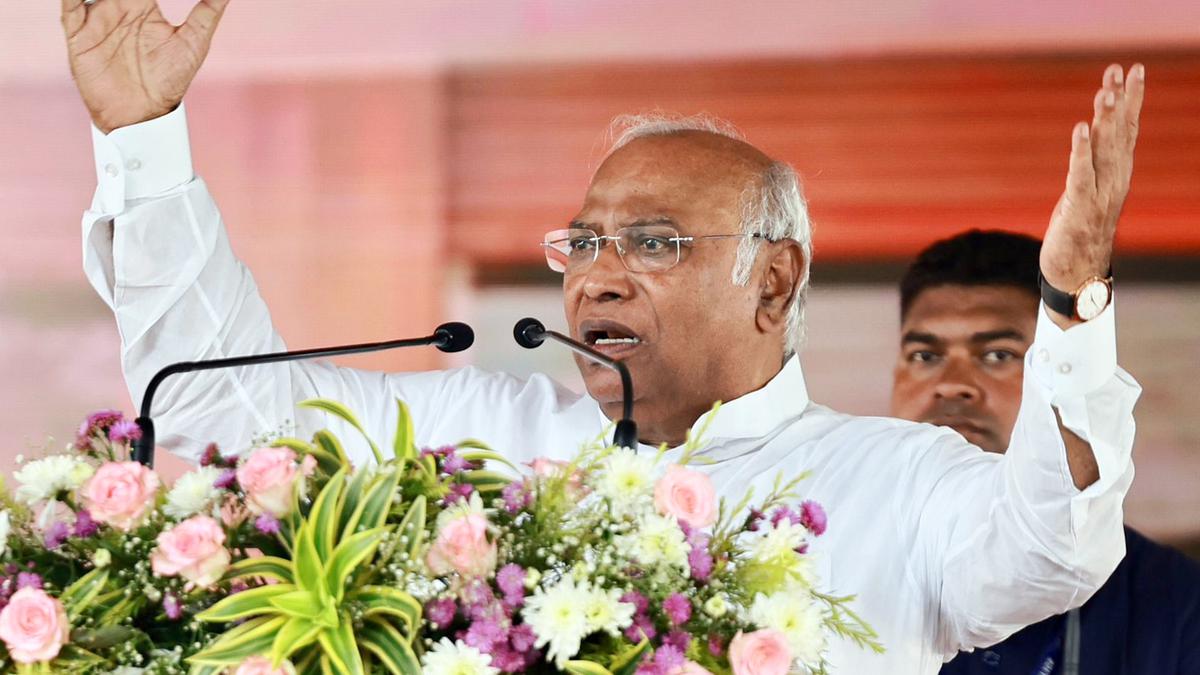The bodies of people killed during an Israeli airstrike are loaded onto a truck outside al-Aqsa Hospital in Deir el-Balah, central Gaza Strip, on October 15, 2023.
| Photo Credit: AP
More than one million people have been forced from their homes in the northern Gaza Strip since Israel began its bombardment against Hamas, the UN said on Sunday, warning of dire conditions on the ground.
Israel declared war on the Islamist group last Sunday, a day after waves of its fighters broke through the heavily fortified border and shot, stabbed and burned to death more than 1,400 people, most of them civilians.
The relentless bombing since against those who masterminded the attack have flattened neighbourhoods and left at least 2,670 people dead in the Gaza Strip, the majority ordinary Palestinians.
But as Israel seeks to avenge the worst attack in its history, the Arab League and African Union warned the invasion could lead to “a genocide of unprecedented proportions”.
UN Secretary-General Antonio Guterres called on Hamas to release all hostages and for Israel to allow humanitarian aid into Gaza, warning that the region was “on the verge of the abyss”.
Also read | Israel’s evacuation order for Gaza ‘tantamount to death sentence’ for patients: WHO
Israel also faced a grave warning about the wider security implications of putting boots on the ground in the densely populated enclave.
“No one can guarantee the control of the situation and the non-expansion of the conflicts” if Israel sends its soldiers into Gaza, said Iran’s foreign minister Hossein Amir-Abdollahian.
“Those who are interested in preventing the scope of war and crisis from expanding need to prevent the current barbaric attacks… against citizens and civilians in Gaza,” he added.
Iran is Israel’s number one enemy and as well as funding Hamas also backs Hezbollah in Lebanon to the north, where cross-border fire has intensified in the last week, prompting Israel to shut the area to civilians.
Follow Israel-Hamas war, day 9 LIVE updates here
Escalation risk
Defence Minister Yoav Gallant said Israel had “no interest in a war in the north, we don’t want to escalate the situation.
“If Hezbollah chooses the path of war, it will pay a heavy price… but if it restrains itself, we’ll respect the situation,” he added.
The United States, which has given unequivocal backing to Israel, is concerned about violence spreading, and has sent two aircraft carriers to the eastern Mediterranean as a deterrent.
In Washington, White House National Security Adviser Jake Sullivan said they feared the prospect of Iran becoming “directly engaged”, after it praised the Hamas attack but insisted it was not involved.
U.S. Secretary of State Antony Blinken has in recent days toured Middle Eastern capitals in a frantic round of diplomacy to try to avert a wider crisis in the volatile region.
On Sunday, he pointed to “determination in every country I went to make sure that this doesn’t spread,” as he left Egypt.
Mr. Blinken has appealed to China to use its influence in the region to ease tensions.
But on Sunday Foreign Minister Wang Yi said Israel’s response had “gone beyond the scope of self-defence”.
He called on Prime Minister Benjamin Netanyahu and his emergency government to “cease its collective punishment of the people of Gaza”.
Aid agencies’ alarm
Israel has massed thousands of troops and heavy weaponry in the desert south of the country, waiting for the green light to go into northern Gaza.
The army has told 1.1 million Palestinians in the north of the Gaza Strip — nearly half of its 2.4-million population — to head south to safety.
But there were still Israeli air strikes in the south, including in Rafah, where one resident said a doctor’s house was targeted.
“All the family was wiped out,” said Khamis Abu Hilal.
Israeli military spokesmen Lieutenant Richard Hecht and Daniel Hagari said any ground offensive would be triggered by a “political decision”.
Mr. Hecht singled out Yahya Sinwar, the chief of Hamas in Gaza blamed for the October 7 attacks, calling him “a dead man walking”.
World Health Organization chief Tedros Adhanom Ghebreyesus on Sunday urged Hamas to release all civilian hostages, and also expressed concern at the price Palestinians civilians and children were paying in the Israeli attacks on Gaza.
Foreign governments and aid agencies, including the UN and ICRC, have repeatedly criticised Israel’s call for Gazans to leave their homes.
The UN agency supporting Palestinian refugees said Sunday that some one million Palestinians had already been displaced in the first week of the conflict — but the number was likely to be higher.
UNRWA commissioner general Philippe Lazzarini said Gaza was facing an “unprecedented human catastrophe” because of the blockade and bombings.
“Raise the alarm that as of today, my UNRWA colleagues in Gaza are no longer able to provide humanitarian assistance as I speak,” he told reporters.


